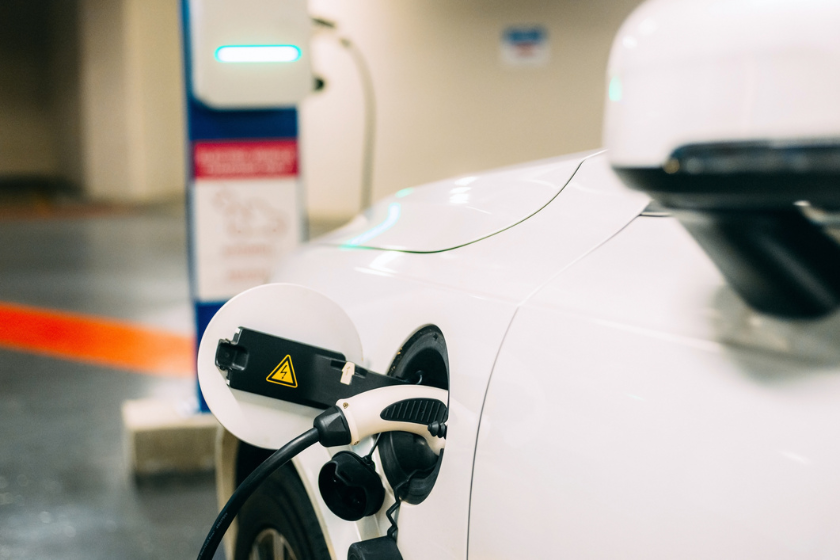ATO governance needs reform: IPA-Deakin SME Research Centre
The IPA-Deakin SME Research Centre has examined the shortcomings of the ATO’s governance model and proposed a Tax...
READ MORE
The fringe benefits tax exemption for eligible electric vehicles was a good start, but real EV progress will come when Australia starts taking emissions standards seriously.

Discussions around vehicle emissions standards often focus too much on the belief that stricter standards represent an attempt by governments to force people to purchase a certain type of vehicle, but this discourse contributes to Australian standards lagging behind many other developed nations.
This is far from the truth, says Chris Jones, President of the Australian Electric Vehicle Association (AEVA). In fact, stricter standards will increase choice and reduce electric vehicle costs.
“Those who are opposed to them are saying, ‘How dare you force people to buy a certain car?’,” Jones says. “The irony is that our lack of fuel efficiency standards are actually denying us the choice of a range of EVs. The only way we’re going to get more EVs, or a diversity of affordable EVs, into this country is if manufacturers are compelled to come up with cleaner versions.”
“We absolutely need vehicle emissions standards. They needed to be introduced yesterday.”
The Climate Council agrees, saying Australians have far fewer choices of low or zero-emissions vehicles than territories that boast strong emissions standards, such as the EU which currently has more than twice the number of EV models available.
“Fuel efficiency standards can help boost the range and affordability of low and zero emissions vehicles in Australia, by providing a strong incentive for manufacturers to send their cheapest and cleanest new cars here. With a fuel efficiency standard in place, EVs are expected to reach price parity with petrol cars in Australia within the next few years,” a report by the Climate Council says.
These standards are currently front and centre when it comes to the work of the AEVA, which also happens to be the longest continuously running EV society in the world.
Vehicle emissions standards are the most powerful policy instrument Australia can offer to clean up motoring and, in fact, to meet Australia’s net-zero goals. A report by the Australian Government’s Department of Climate Change, Energy, the Environment and Water says transport emissions, the bulk of which come from cars, make up around 20% of Australia’s total carbon emissions.
What other tools might help deliver more environmentally friendly results?
It is perhaps surprising that the president of the AEVA is planning to argue for a universal road user charge in the near future, once EVs make up 30% of all new vehicle sales. After all, EV drivers are currently avoiding such an expense by not paying fuel excise.
But it’s the only equitable way forward, Jones says, as our roads increasingly see a mix of internal-combustion engine (ICE) cars, hybrids and EVs.
“We’re fans of the federal government collecting a charge based on mass and distance,” Jones says. “So, it’s proportional to how heavy your vehicle is and how far you travel. That would effectively serve the purpose that the fuel excise has been doing.”
Government might even decide to leave the fuel excise in place at a reduced rate, he says.
But in the end, all owners of “1.8-tonne lumps of steel”, no matter how they’re powered, have a responsibility to make a contribution to the road infrastructure and maintenance, Jones argues.
“The last thing EV owners want is to be accused of being entitled prats who drive around without paying their dues on the roads,” he says.
“Also, what we’re proposing will make EVs better and cheaper, as the other benefit of the mass times distance component is that it basically means heavier vehicles, including heavier EVs, will cost you more. So it will encourage manufacturers to make lighter EVs and consumers to buy lighter EVs.”
Late in 2022, the Electric Car Discount Bill passed Parliament. It provided a “fringe benefits tax (FBT) exemption for eligible cars made available for employees by employers”, the office of The Hon Chris Bowen MP, Minister for Climate Change and Energy announced. For a model valued at about $50,000, that exemption would result in a $9,000 benefit to an employer, or a $4,700 benefit to an employee using a salary sacrificing arrangement.
Companies typically avoided the purchase of EVs because of the high upfront cost that included FBT, Jones says.
“Once that was removed, now EVs have actually tipped into the you’re-mad-not-to situation,” he says. “It’s now quite affordable for an employer to provide an EV because it saves them money, and it saves the employee money as well.”
The employee who charges the EV at home can also figure out and claim a tax deduction for charging costs, wrote Julia Hartman from Ban Tacs National Accountants Group.
“So far the FBT exemption has been very successful,” Jones says. “It has been relatively easy to implement, too. The other big innovation has been novated leases, which has been a great way to get an EV. You might pay a bit more, but you get it sooner.”
In terms of the big picture, though, vehicle emissions standards are still number one. Current standards are based on an international standard known as Euro 5, with stricter requirements based on Euro 6 (Stage C) being implemented between 2024 and 2027.
That still leaves Australia a long way behind other developed territories, with the EU introducing much stricter Euro 7 standards in 2025 for light-duty vehicles.
“It’s entirely possible to sell the most polluting, inefficient vehicle in this country [Australia] and not cop any penalty for it,” Jones says. “There has been a kick-the-can-down-the-road mentality … it's really frustrating.”
“Fuel efficiency standards would have the biggest and most wide reaching impact, much more quickly.”